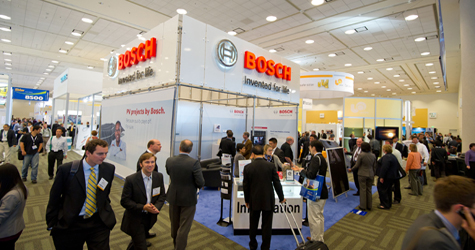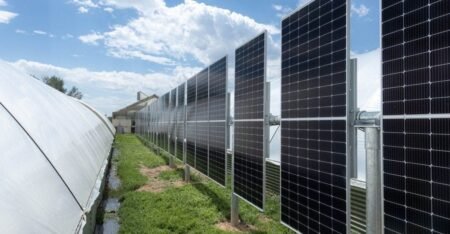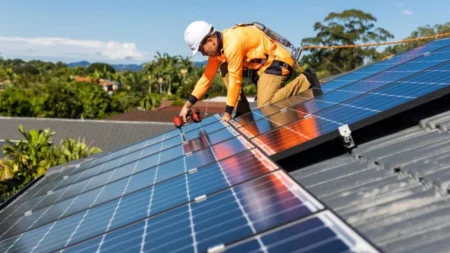BioSolar, Inc. (OTCQB: BSRC), developer of breakthrough products and materials that reduce the cost of photovoltaic (PV) solar modules, today announced that the company is developing BioSuperCap, a low cost polymer-based supercapacitor technology for reducing the cost of storing the energy of the sun.
BioSolar co-owns the patent-application for this supercapacitor technology with the University of California at Santa Barbara (“UCSB”), and is currently funding a sponsored research program to further its development. The lead inventors of the technology are UCSB professor Dr. Alan Heeger, the recipient of a Nobel Prize in 2000 for the discovery and development of conductive polymers, and Dr. David Vonlanthen, a post-doctoral researcher at UCSB.
According to the latest edition of NPD Solarbuzz Marketbuzz, the solar photovoltaic (PV) industry is predicted to experience rapid growth over the next five years, with up to 100 gigawatts (GW) of annual installations, growing to $50 billion per year of PV module revenue by 2018. With all of these solar panels being installed, there is still one major challenge that prevents solar from being a primary and reliable source of power — the sun does not shine at night.
As a result, solar users will switch to using electricity from the local power company during the evening hours. This switch causes sudden spikes in power demand on the grid and creates havoc at the local power company because the grid is not designed to respond to rapid demand changes. The key to solving this problem is efficient solar energy storage systems that can be charged and discharged rapidly, day in and day out. This will time-shift daytime solar energy for nighttime use with minimal reliance on the power grid.
Dr. David Lee, the company’s CEO said, “Existing battery technologies, such as lithium-ion batteries, are good for longer-term energy storage, but cannot be charged or discharged rapidly. This limits the use of batteries to power backup applications. Supercapacitors, on the other hand, can be charged and discharged hundreds of times faster than batteries. Unfortunately, conventional supercapacitors are very expensive and store less energy. BioSuperCap is designed to be a low cost and high energy supercapacitor. By integrating BioSuperCap as the front-end to battery banks, fewer batteries can be used, and daytime solar energy can be quickly and cost-effectively stored for nighttime use at a substantially lower cost. This potentially game-changing technology will allow users of solar energy systems to reduce their dependence or go completely off the electric utility power grid.”
About BioSolar, Inc.
BioSolar, producer of innovative bio-based solar energy products, is currently developing a breakthrough supercapacitor technology for reducing the cost of storing the energy of the sun. Existing battery technologies, such as lithium-ion batteries, are good for longer-term energy storage, but cannot be charged or discharged rapidly. This characteristic limits the use of batteries for power backup applications. Inspired by nature, BioSolar is developing a low cost polymer based supercapacitor that can be charged and discharged hundreds of times faster than batteries, and will complement batteries for the storage of solar energy. By integrating BioSolar supercapacitors as the high power frontend to battery banks, with fewer battery banks than would ordinarily be required, daytime solar energy can be quickly and cost-effectively stored for nighttime use at a substantially lower cost. This potentially game-changing technology will allow users of solar energy systems to reduce their dependence or go completely off the electric utility power grid. To learn more about BioSolar, please visit our website at http://www.biosolar.com.
Safe Harbor Statement
Matters discussed in this press release contain forward-looking statements within the meaning of the Private Securities Litigation Reform Act of 1995. When used in this press release, the words “anticipate,” “believe,” “estimate,” “may,” “intend,” “expect” and similar expressions identify such forward-looking statements. Actual results, performance or achievements could differ materially from those contemplated, expressed or implied by the forward-looking statements contained herein. These forward-looking statements are based largely on the expectations of the Company and are subject to a number of risks and uncertainties. These include, but are not limited to, risks and uncertainties associated with: the impact of economic, competitive and other factors affecting the Company and its operations, markets, product, and distributor performance, the impact on the national and local economies resulting from terrorist actions, and U.S. actions subsequently; and other factors detailed in reports filed by the Company.









